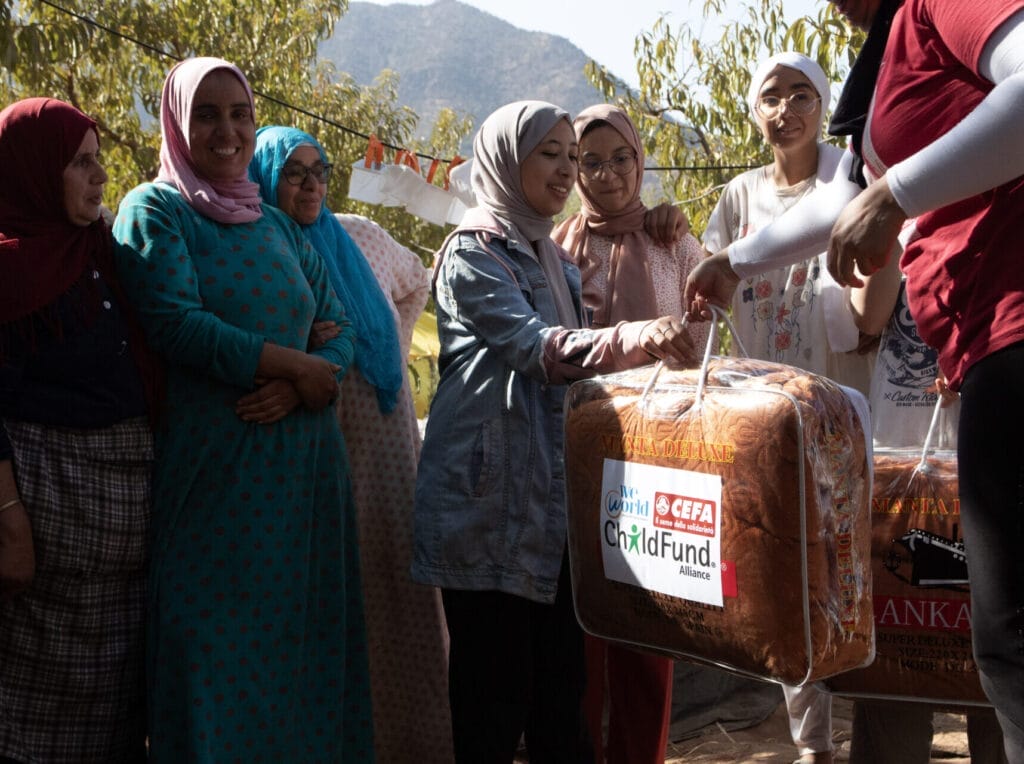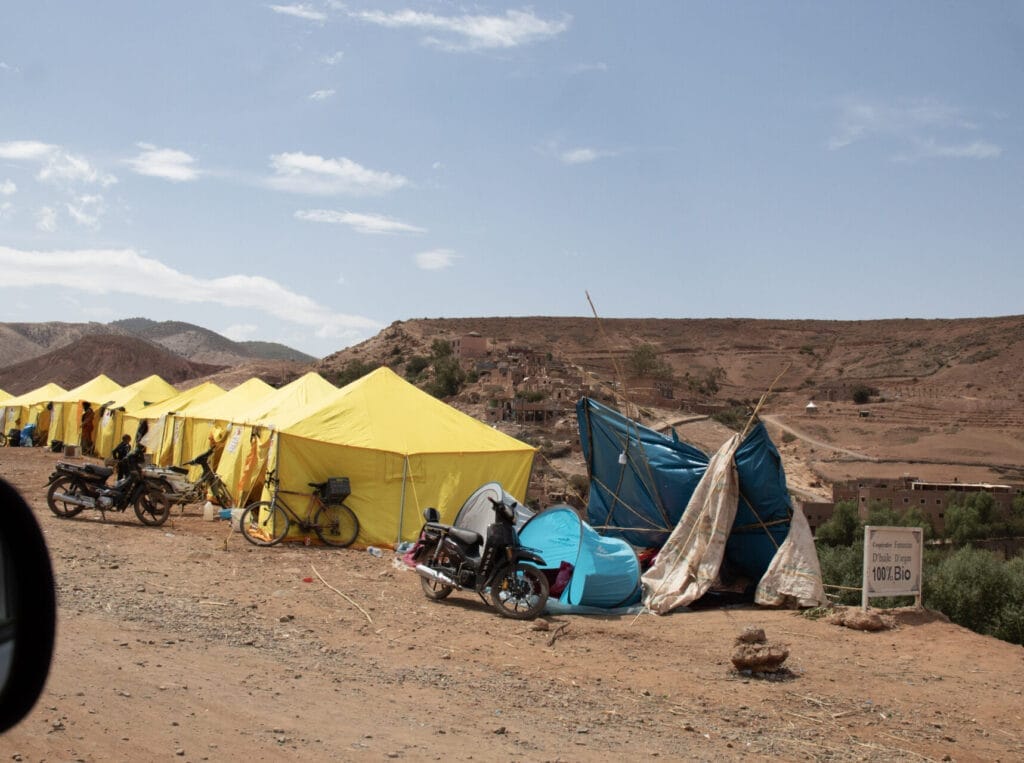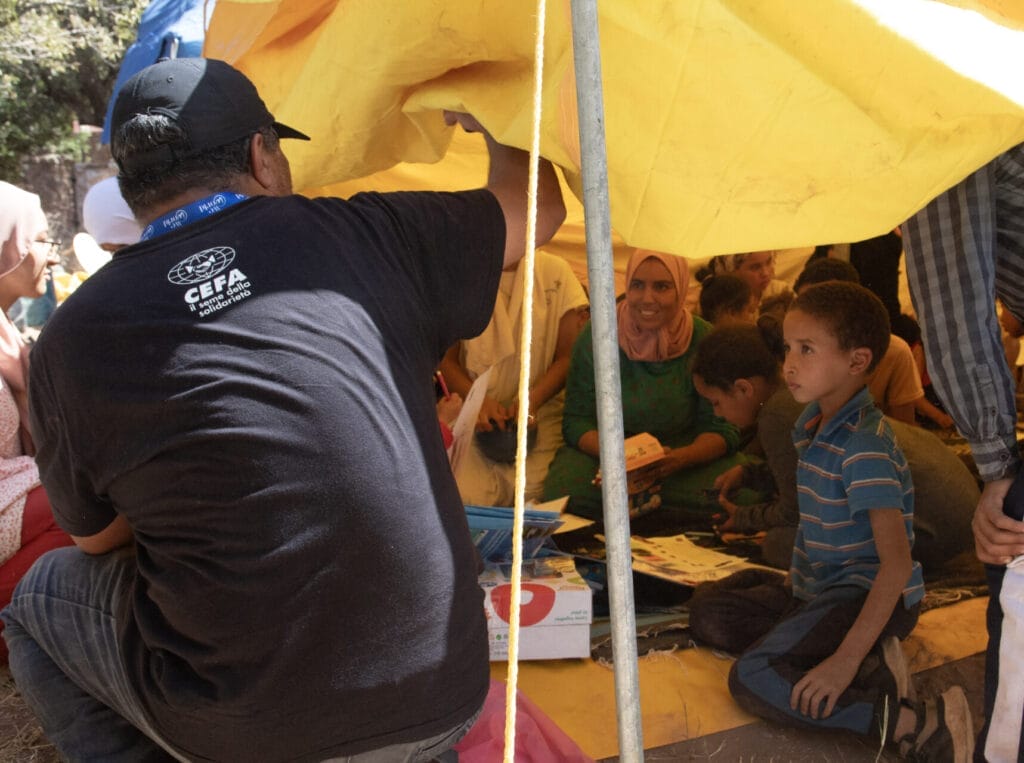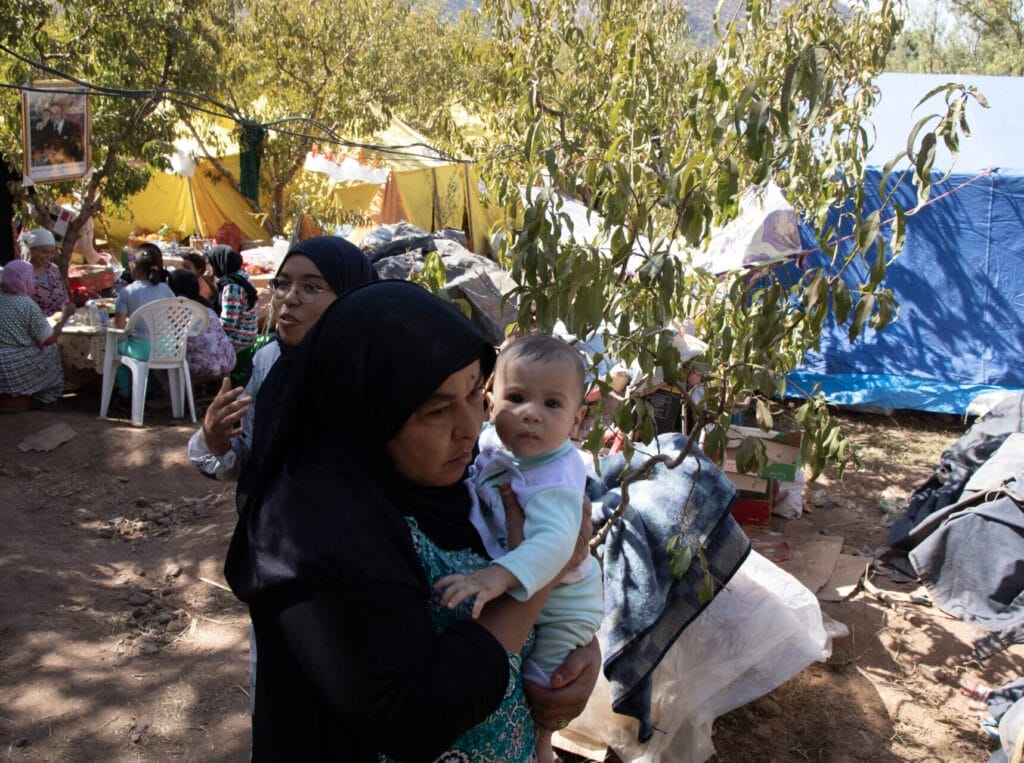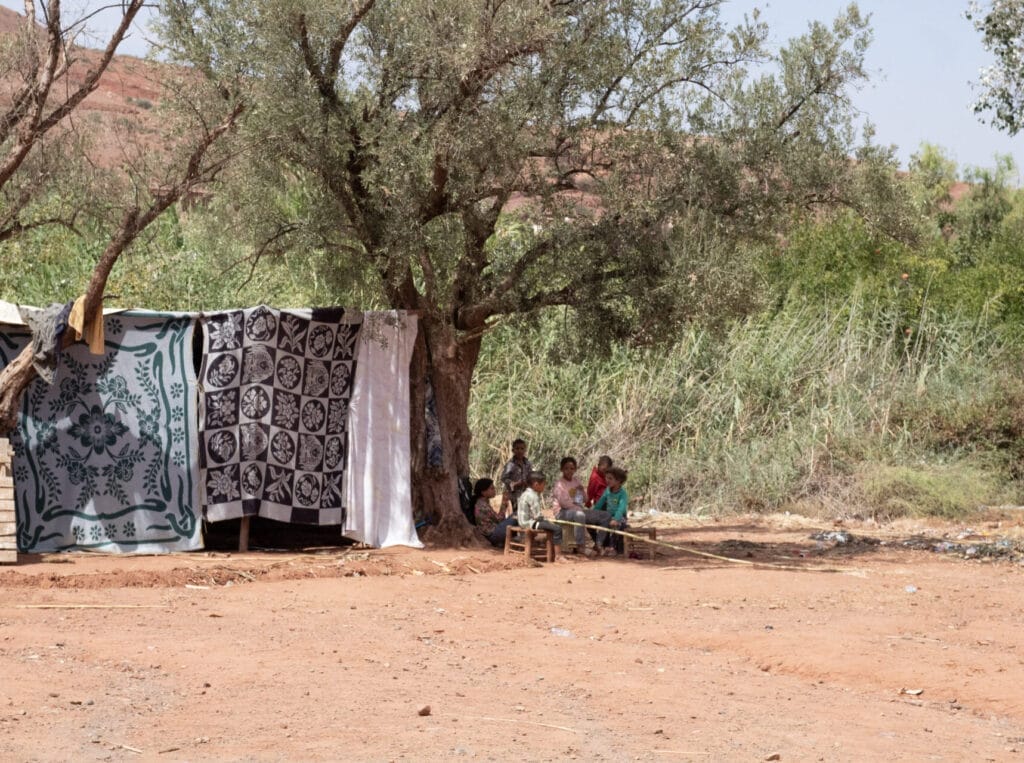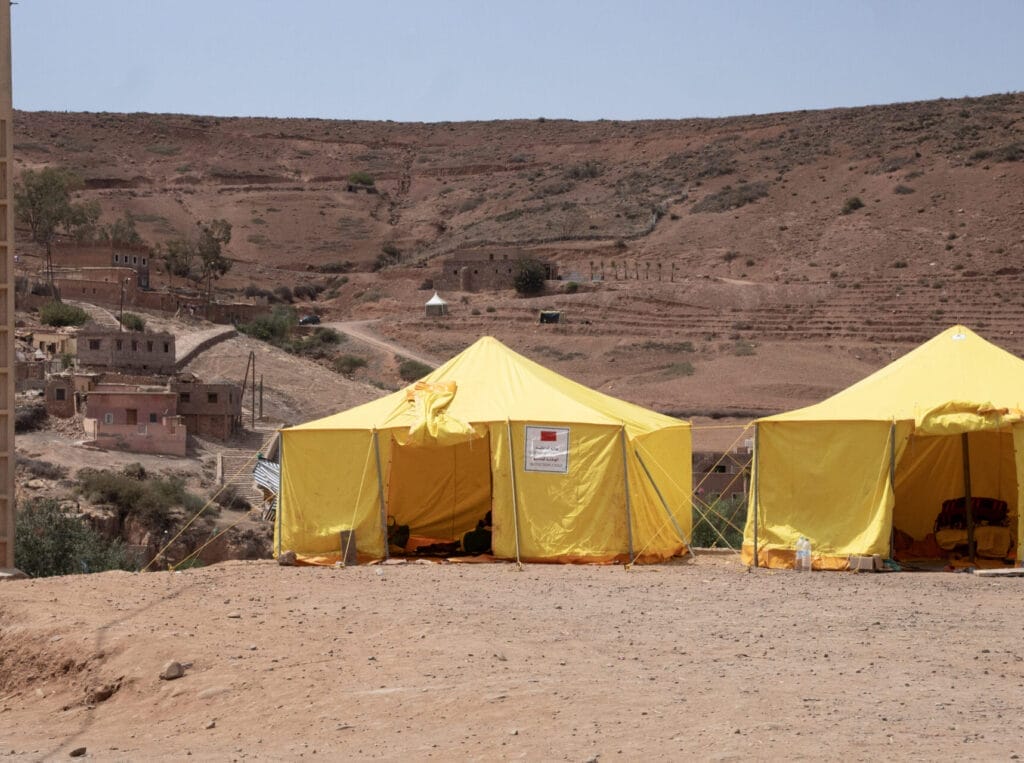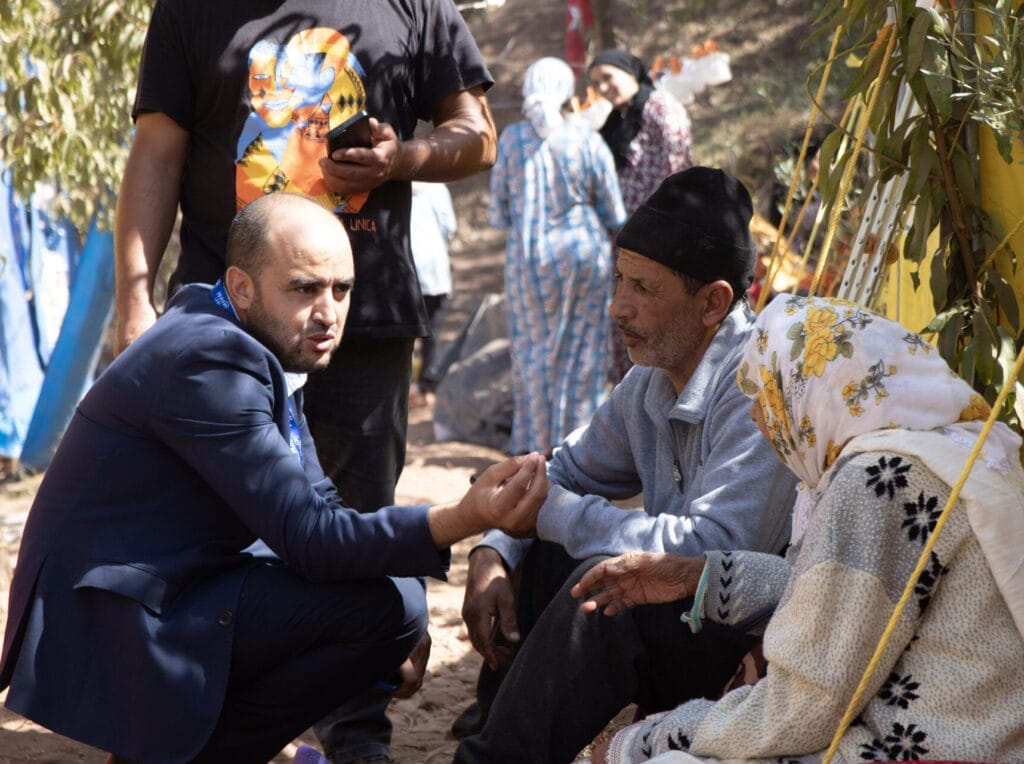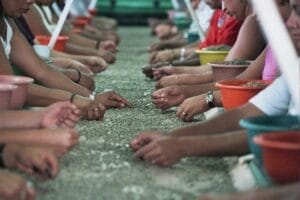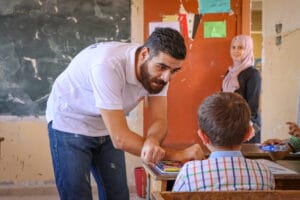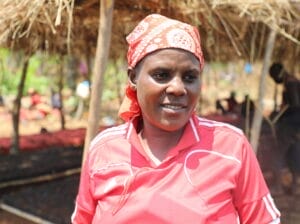
On 8 September, a terrible 6.8 magnitude earthquake struck Morocco. To date there are 2900 dead and over 2000 injured, most of whom in the provinces of Al-Haouz, epicentre of the earthquake, and Taroudant, but the numbers - already dramatic - could still rise. The impact of the earthquake will affect more than 100,000 children (UNICEF data).
That is why together with CEFA, a non-governmental organisation active with development cooperation projects, we are coping with the effects of the earthquake to offer concrete and immediate help to those who have seen their lives turned upside down in a few hours. Everything is needed: water, temporary shelters - with related goods such as tents, mattresses and blankets - warm clothes and shoes, medical assistance and medicines and cooking utensils.
The epicentre of the earthquake and the worst affected areas are in mountainous areas and difficult to access due to landslides on roads or the collapse of roadways. Several aftershocks were also reported in the days following the earthquake, with families still trapped under the rubble of their homes, road blocks and areas that are difficult to reach.
The needs are huge, starting with medicines, tents, mattresses and blankets to provide shelter and protection against the rain and nights outside.
Access to electricity was cut off in many areas due to cable damage. Canisters are needed to ensure easier transportation and storage of drinking water and for normal daily hygiene and cooking activities, as well as cooking utensils, because in many cases long-lasting foodstuffs (rice, pasta, flour) have been distributed but there are no pots and other utensils to cook them.
Together with Cefa staff, we are responding to the main needs in the most affected areas, Al-Haouz (Marrakech region) and Taroudant (Souss-Massa region), with distributions of basic necessities. We are also assessing the needs and risks for the local populations in order to design an intervention that goes beyond the immediate emergency response and lays the foundations for medium-term support for the most affected families, especially the most vulnerable categories.


